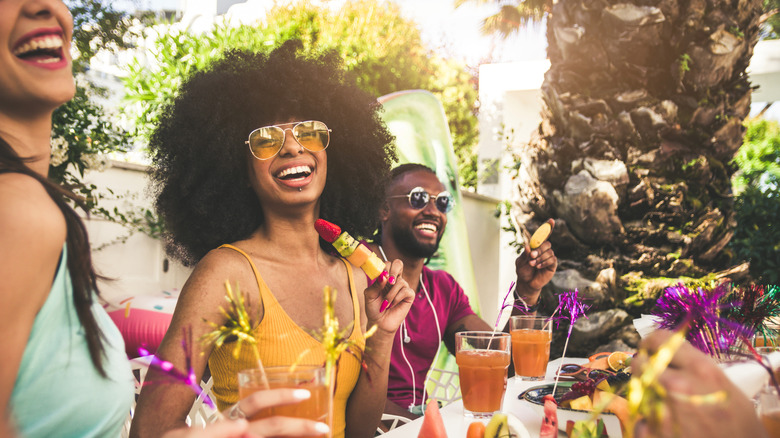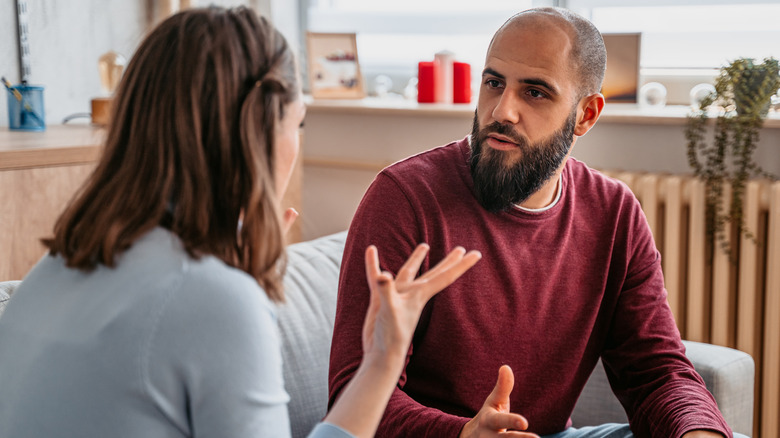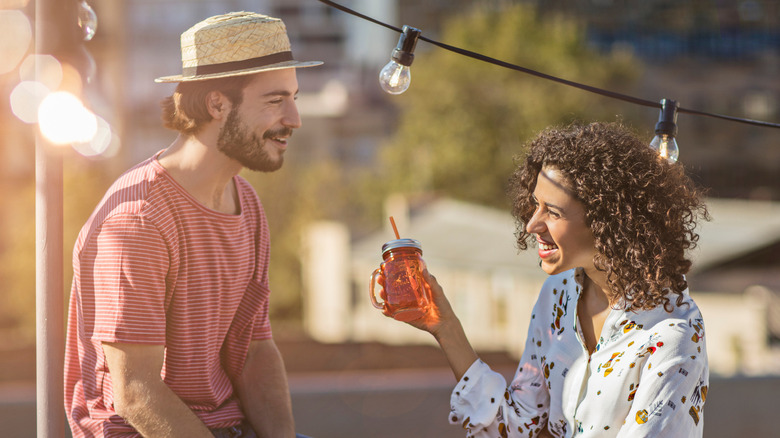How To Handle Parties & Events With A Sober Partner (Respect Is Key)
When it comes to parties in the Western world, alcohol is usually involved. Whether you consume alcohol or not, there is no denying just how popular it is, particularly when it comes to significant events. In 2023, 78% of Americans 12 and older said they'd drank alcohol at some point in their life, according to the National Institute on Alcohol Abuse and Alcoholism.
However, while drinking is popular, not everyone enjoys it. Some reasons people don't like drinking may come down to not liking the taste, while others simply don't want to feel inebriated. For some, it may boil down to personal preference. If you're a drinker yourself, then it may be hard to understand why some people don't like drinking. However, it's actually perfectly normal not to enjoy such an activity, and many people are happy without it. It's even deemed normal not to drink in certain cultures.
If you have a partner that doesn't drink, you may wonder how best to navigate certain situations. For example, what do you do at parties when your partner doesn't imbibe? While it may seem tricky, it can be surprisingly simple if you both work together. Communication and respect are key to creating the best outcome for you both.
Don't judge your partner's choices
While it's very normal not to drink, there are plenty of people out there who will make comments in regard to this chosen habit. However, if someone chooses not to drink, it's not for you to judge their lifestyle choice. This may make them less likely to attend events with you in the future. Instead, make sure they know that you accept their decision.
Of course, in situations that involve more people, it's important to be aware of how others are making your partner feel too. To be a good partner to your significant other, be sure they feel comfortable and try not to succumb to social pressures when partying yourself. It can be easy to cave and conform to the crowd, but while it may be tempting to consume more alcohol when around others if your partner isn't drinking and you are, it won't take too long until alcohol-induced personality changes start to show, and that could cause problematic behavior in their eyes. "You'll get on a completely different level pretty quickly if you're downing wine while they're on the soda and lime," Author Ruby Warrington, who wrote "Sober Curious: The Blissful Sleep, Greater Focus, Limitless Presence, and Deep Connection Awaiting Us All on the Other Side of Alcohol," told Elite Daily.
Find out how your partner feels
The first step to handling parties and events with a sober partner is discussing the topic. Don't shy away from it — be direct with your partner. Following through with this will help to open up the conversation and allow both yourself and your partner's feelings to be heard. For example, did they have a past addiction? Perhaps drinking makes them feel anxious, unhappy, or sick. Whatever the reason, it's important to note how alcohol can make your partner feel. All of these instances could affect how they view and feel about alcohol. Alternately, they may have reasons they aren't ready to share and if that's the case, it's still important to simply respect their choice. The key point here is communication and understanding.
By thoroughly discussing the topic, hopefully, your partner will feel more at ease when in your presence and at any parties you may both attend together. However, when it comes to these meaningful discussions, there are other tips you can keep in mind too.
Give your partner options
Attending parties can be fun and exciting. For many, it is a chance to socialize and unwind. However, for people who don't drink, these events can sometimes feel overwhelming. This is why giving your partner alternative options is so important, explains Ruby Warrington, author of Sober Curious to Elite Daily: "Before a night out, you can make a plan for what to do if the non-drinker wants to leave early and you want to stay. Then it won't become a 'thing' in the moment," she said.
Taking the proper steps will help your partner feel supported in the situation, and they may even look forward to the event or party knowing they have the freedom to do what they wish. They also won't be plagued with the guilt of leaving unexpectedly either, which can be an issue for many, particularly for individuals high in empathy.
Likewise, this also gives you the freedom to stay as long as you please. In this instance, both of you will be happy as your personal needs are being met. Of course, if any feelings change, it's important to discuss these too. Flexibility is critical when it comes to making agreements.
Follow through with your promises
If you're attending parties and events with a sober partner, there are some very specific steps to take. Therapist Allen Wagner, LMFT explains to Well + Good the best way to navigate the situation to ensure that both partners are seen and heard in the situation: "It's good to agree on certain [rules] for the person who drinks to adhere to so that there are no surprises, which can otherwise lead couples into fight-or-flight responses." He also adds that "things should feel fair and not hypocritical." This advice follows from the previous step and is essential, as it allows both partners to feel safe and respected.
Without any mutual respect, you may find it challenging for you and your sober partner to attend events such as these together. In fact, it may even wear away in other areas of your relationship. For example, if your partner feels uncomfortable around you when you get particularly drunk, try to be wary of this and help them to feel safe by limiting your drinking when you are together. This type of behavior may be more appropriate for a night out with just your friends, without your partner around.
Drinking isn't the only thing to do at parties
While parties and events often involve alcohol, there are still plenty of other elements of a gathering to enjoy. Rather than the main focus being on alcohol, your partner could focus on socializing, playing party games, sampling all of the food options, or enjoying a fun activity with friends. In fact, you could take the initiative to bring a game or activity that your partner likes and see if there are any takers. Having something to do will likely help your partner feel more at ease and stave off boredom or awkwardness if the party is the kind where drinking is the main event.
Likewise, there may also be other individuals at an event or party who don't drink. This is the perfect opportunity for your partner to mingle with like-minded people. They may even form new bonds in the process. Of course, ensuring your partner feels comfortable should always be a top priority and will help your relationship thrive.





